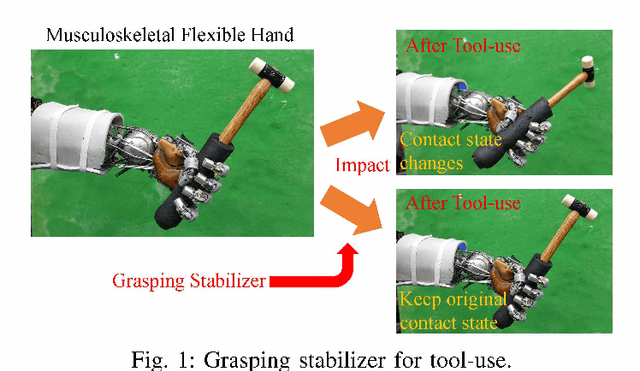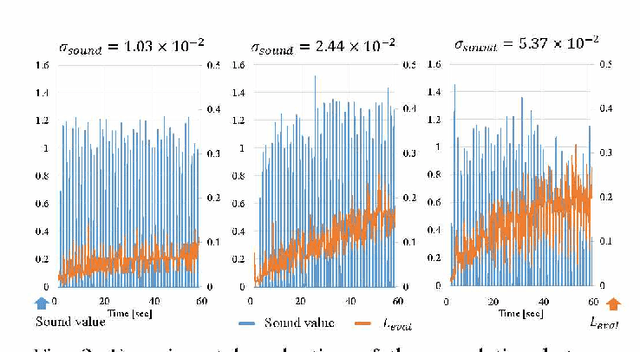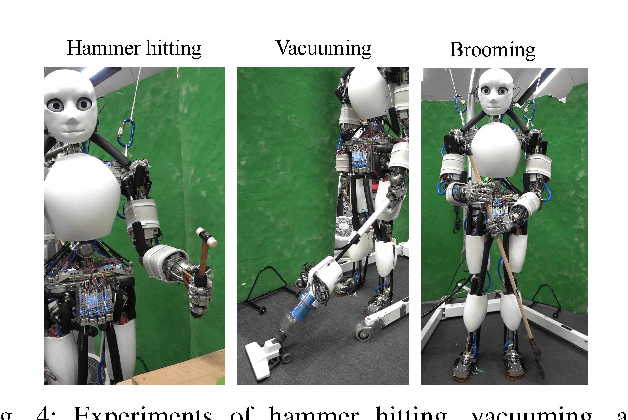Stable Tool-Use with Flexible Musculoskeletal Hands by Learning the Predictive Model of Sensor State Transition
Paper and Code
Jun 24, 2024



The flexible under-actuated musculoskeletal hand is superior in its adaptability and impact resistance. On the other hand, since the relationship between sensors and actuators cannot be uniquely determined, almost all its controls are based on feedforward controls. When grasping and using a tool, the contact state of the hand gradually changes due to the inertia of the tool or impact of action, and the initial contact state is hardly kept. In this study, we propose a system that trains the predictive network of sensor state transition using the actual robot sensor information, and keeps the initial contact state by a feedback control using the network. We conduct experiments of hammer hitting, vacuuming, and brooming, and verify the effectiveness of this study.
 Add to Chrome
Add to Chrome Add to Firefox
Add to Firefox Add to Edge
Add to Edge